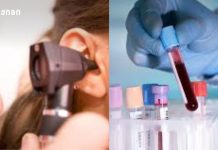New Cancer Treatment – Is Georgia’s Healthcare Ready?
Cancer is rapidly becoming one of the leading causes of death in Georgia and is on the rise. This trend highlights the urgent need for effective public health strategies to address this growing epidemic.
Professor Giorgi Pkhakadze, Chair of the Public Health Industry of Georgia (PHIG), has long emphasized the critical need for investment in cancer research and innovative treatment methods, such as bacterial vaccines, which offer personalized, targeted therapies that could revolutionize cancer care.
“Cancer is not just a major health issue; it is a public health emergency” – says Professor Giorgi Pkhakadze.
“We must adapt and adopt cutting-edge treatments, like bacterial vaccines, which have shown great promise in preclinical trials.”
As the burden of cancer continues to increase, Georgia’s healthcare system faces the risk of being overwhelmed, making the integration of advanced therapies an urgent priority.
Accreditation by international bodies such as Accreditation Canada (AC) and the Joint Commission International (JCI) is key to ensuring that Georgia’s hospitals are ready to adopt and safely administer these treatments. These accreditations are critical because they focus on quality, patient safety, and adherence to strong international healthcare standards, which will be essential for the safe introduction of innovative cancer therapies.
Cancer’s rise in Georgia can be attributed to a combination of factors, including lifestyle changes, environmental factors, and an aging population. Without proactive measures such as early detection programs and access to personalized treatments, the public health impact will be severe. The introduction of bacterial cancer vaccines, coupled with high-quality healthcare systems, could offer a transformative solution to this growing challenge.
The Impact of These Discoveries on Georgia’s Healthcare System
As cancer becomes a more pressing public health issue, Georgia will need to look to global scientific innovations to improve patient outcomes. Professor Pkhakadze highlighted how bacterial vaccines could revolutionize cancer care in Georgia but stressed that these treatments must be supported by healthcare facilities that meet international standards. Hospitals accredited by bodies like AC and JCI are more likely to be equipped with the necessary infrastructure and trained personnel to safely and effectively implement these therapies.
“Accreditation is crucial for ensuring that Georgian healthcare facilities are prepared for the future of cancer treatment” – Professor Pkhakadze explained.
“These certifications guarantee that our hospitals are providing safe, high-quality care, which is essential when dealing with life-saving treatments like bacterial vaccines.”
With cancer continuing to rise, Georgia’s healthcare system must evolve. This includes not only integrating advanced treatments but also ensuring that hospitals meet the rigorous international standards required for such innovations. By achieving accreditation and focusing on both prevention and treatment, Georgia can move towards reducing cancer mortality rates and improving overall public health.
Conclusion: Combating Cancer in Georgia
Cancer’s status as one of the leading causes of death in Georgia makes it a significant public health concern. Innovations like bacterial cancer vaccines offer hope, but the successful implementation of these therapies will require the readiness of healthcare facilities to adopt new treatments safely. By focusing on international accreditation and strengthening healthcare quality, Georgia can take important steps towards reducing the burden of cancer on its population and improving patient outcomes for the future.
#drpkhakadze #sheniekimi





